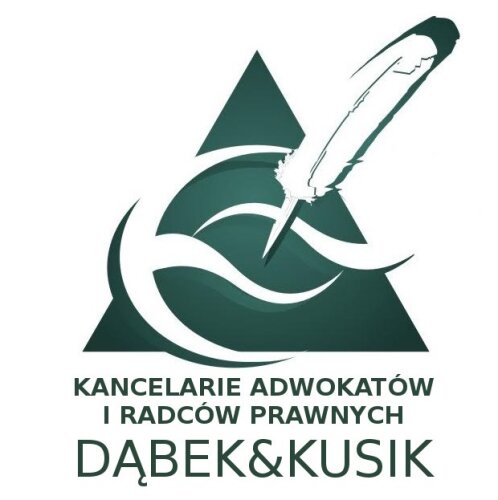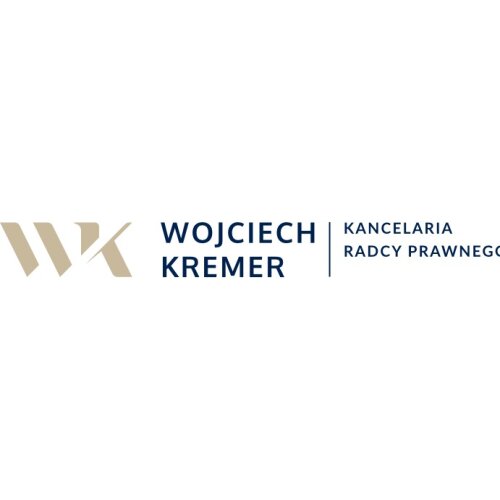Best Natural Resources Lawyers in Poland
Share your needs with us, get contacted by law firms.
Free. Takes 2 min.
Or refine your search by selecting a city:
List of the best lawyers in Poland
About Natural Resources Law in Poland
Natural resources in Poland encompass a wide array of materials and elements such as minerals, coal, natural gas, water, forests, and agricultural land. Poland is particularly notable for its coal resources, which play a significant role in the country's energy supply. The legal framework governing these resources focuses on sustainable management, utilization, environmental protection, and economic development. Key statutes govern the mining sector, forestry management, water usage, and the conservation of biodiversity, reflecting Poland's commitment to balancing resource exploitation with ecological preservation.
Why You May Need a Lawyer
Individuals and businesses may require legal assistance in the field of natural resources for various reasons, including:
- Obtaining permits and licenses for resource extraction activities such as mining, drilling, or logging.
- Ensuring compliance with environmental protection laws and regulations.
- Resolving disputes over land use, resource access, or environmental impact assessments.
- Understanding obligations and rights under land ownership or lease agreements involving natural resources.
- Engaging in transactions related to the sale or acquisition of resource-rich lands.
- Participating in public consultations or environmental assessments for new projects.
- Defending against allegations of legal violations in resource management or environmental harm.
Local Laws Overview
Poland's natural resources are governed by several key pieces of legislation:
- Geological and Mining Law: This law regulates the licensing, exploration, and extraction of minerals. It includes provisions for environmental protection and the rehabilitation of mining sites.
- Environmental Protection Law: A comprehensive framework that sets out the principles and obligations for protecting the environment, including aspects related to resource extraction and management.
- Water Law: Governs the management and conservation of Poland's water resources, including use rights and prevention of water pollution.
- Forestry Act: Regulates the management of forests, including logging activities, conservation efforts, and afforestation.
- Land Use Planning Statutes: Direct the use and development of land, including areas rich in natural resources.
Frequently Asked Questions
What are the main types of natural resources in Poland?
Poland's main natural resources include coal, lignite, copper, sulfur, natural gas, zinc, lead, and significant reserves of timber and arable land.
What is the role of the Polish government in natural resource management?
The Polish government regulates and manages natural resources through policies and legislation designed to ensure sustainable development, economic efficiency, and environmental protection.
Do I need a permit for mining activities in Poland?
Yes, mining activities require specific permits and licenses, which are issued by the Polish Ministry of Climate and Environment and relevant local authorities.
How does Poland address environmental concerns related to resource extraction?
Environmental concerns are addressed through rigorous environmental impact assessments, public consultations, and compliance with international environmental standards.
Can foreign companies invest in Poland's natural resources sector?
Yes, foreign companies can invest in Poland's natural resources sector, but they must comply with local laws and regulations, including obtaining necessary permits and licenses.
What are the penalties for non-compliance with natural resource regulations?
Penalties for non-compliance can include fines, suspension of licenses, legal proceedings, and obligations to restore damaged environments.
How are forest resources managed in Poland?
Forest resources are managed under the Forestry Act, which emphasizes sustainable forest management, conservation, and the economic use of timber resources.
What incentives exist for sustainable practices in natural resource management?
Poland offers various incentives for adopting sustainable practices, including tax benefits, grants for environmental projects, and recognition through national awards for excellence in sustainability.
Are there legal protections for biodiversity in Poland?
Yes, Poland has ratified international conventions and implemented national laws to protect biodiversity, focusing on conservation efforts and sustainable management of natural habitats.
What are the current trends in Poland's natural resource law?
Recent trends include a stronger emphasis on renewable energy, tighter regulatory oversight on environmental protection, and increased public participation in decision-making processes related to resource management.
Additional Resources
For those seeking more information or assistance with natural resources in Poland, the following organizations can be helpful:
- The Ministry of Climate and Environment - Responsible for environmental protection and resource management policies.
- The Polish Geological Institute - Offers research and information related to Poland's geological resources.
- The State Forests National Forest Holding - Manages public forests and promotes sustainable forest management.
- The Polish Chamber of Commerce for the Energy and Environmental Protection Sectors - Provides insights and support for businesses involved in these industries.
Next Steps
If you require legal assistance in the field of natural resources, consider taking the following steps:
- Identify the specific legal issue or information you need assistance with, such as permits, compliance, or litigation.
- Research and gather documentation related to your case or project.
- Consult with a specialized lawyer or legal firm experienced in Polish natural resource laws.
- Consider contacting relevant governmental bodies or industry organizations for additional support and guidance.
- Stay informed about changes in legislation and industry trends that may impact your activities or interests.
Lawzana helps you find the best lawyers and law firms in Poland through a curated and pre-screened list of qualified legal professionals. Our platform offers rankings and detailed profiles of attorneys and law firms, allowing you to compare based on practice areas, including Natural Resources, experience, and client feedback.
Each profile includes a description of the firm's areas of practice, client reviews, team members and partners, year of establishment, spoken languages, office locations, contact information, social media presence, and any published articles or resources. Most firms on our platform speak English and are experienced in both local and international legal matters.
Get a quote from top-rated law firms in Poland — quickly, securely, and without unnecessary hassle.
Disclaimer:
The information provided on this page is for general informational purposes only and does not constitute legal advice. While we strive to ensure the accuracy and relevance of the content, legal information may change over time, and interpretations of the law can vary. You should always consult with a qualified legal professional for advice specific to your situation.
We disclaim all liability for actions taken or not taken based on the content of this page. If you believe any information is incorrect or outdated, please contact us, and we will review and update it where appropriate.
Browse natural resources law firms by city in Poland
Refine your search by selecting a city.

















